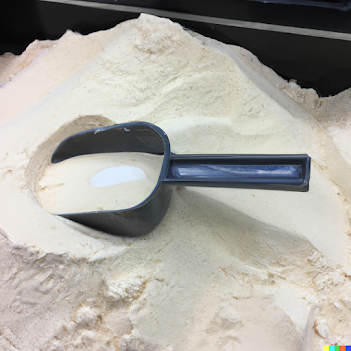Protein Powder: Unraveling the Good and the Bad
In the world of fitness and health, protein powders have emerged as a popular dietary supplement. From athletes to fitness enthusiasts, many individuals rely on these powdered supplements to enhance their protein intake and support their fitness goals. However, amidst the popularity, the question remains: Is protein powder really good or bad for you? Let's delve into this topic and explore the benefits and potential drawbacks of using protein powder as a dietary supplement.
Understanding Protein Powder
Protein powder is a concentrated form of protein derived from various sources such as whey, casein, soy, pea, hemp, and rice. These powders are typically mixed with water or other liquids to create a protein-rich shake that aids in muscle recovery and growth.
Benefits of Protein Powder
1. Muscle Building: Protein is crucial for muscle repair and growth, especially for individuals engaged in resistance training or physical activities. Protein powder offers a convenient way to increase protein intake, supporting muscle development and recovery after intense workouts.
2. Weight Management: Protein is known for its satiating effect, which can help control hunger and aid in weight management. Protein shakes can be a meal replacement option, reducing overall calorie consumption while providing essential nutrients.
3. Convenience: One of the main advantages of protein powder is its ease of use. It is portable and can be prepared quickly, making it an excellent on-the-go option for those with busy lifestyles.
4. Nutrient-Rich: Protein powders often contain essential vitamins and minerals that contribute to overall health, making them a convenient source of several nutrients.
Potential Drawbacks of Protein Powder
1. Digestive Issues: Some individuals may experience digestive discomforts, such as bloating, gas, or upset stomach when consuming protein powder. This can be attributed to lactose intolerance (in the case of whey and casein) or sensitivity to specific protein sources.
2. Quality Concerns: Not all protein powders are created equal. Low-quality or cheap products may contain harmful additives, heavy metals, or contaminants, which could pose health risks if consumed regularly.
3. Overconsumption: Protein supplements are designed to complement a balanced diet, not replace whole foods entirely. Overreliance on protein powder may lead to an inadequate intake of other essential nutrients, resulting in nutritional imbalances.
4. Allergies: Individuals with allergies to soy, dairy, or other protein sources should exercise caution when choosing a protein powder to avoid allergic reactions.
As with any dietary supplement, moderation and informed choices are essential when using protein powder. If you have specific health conditions or dietary restrictions, it is advisable to consult a healthcare professional or a registered dietitian before incorporating protein powder into your routine.
Protein powder can be a beneficial addition to a balanced diet, especially for individuals with increased protein needs due to physical activity or specific health goals. However, it is crucial to choose high-quality products and consume them in moderation to reap the benefits while avoiding potential drawbacks. As with any dietary change, consulting a healthcare professional or a registered dietitian is recommended to ensure the right protein powder choice for your individual needs.









0 Comments